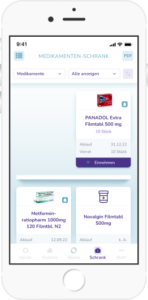Tilidine FAQ – What you should know about the medicine
If you take or are prescribed medication, it is important to be aware of its use, effects and side effects. This article is about tilidine, a powerful painkiller commonly used to treat pain. Here you can find the answers to the most frequently asked questions about the preparation.
What is Tilidine?
Tilidine is a narcotic and belongs to the group of opioids. The active ingredient is tilidine hydrochloride and it is prescribed as tablets or drops. In Germany, tilidine is available only on prescription.
What is Tilidine used for?
Tilidine is used for severe pain that cannot be treated with other medications. The drug may also be prescribed for cancer or after surgery.
How is tilidine taken?
Tilidine is taken orally, as a tablet or drops. There is also a solid, sustained release (retard) tablet. The dosage depends on the severity of the pain and should always be prescribed by a doctor or pharmacist. It is important not to increase the dose or shorten the time of intake to avoid dependence or overdose.
Our tip: Medication apps are a handy tool when it comes to the right dosage.
What are the effects of Tilidine?
Tilidine relieves pain and has a sedative effect. It may also cause drowsiness and dizziness. The effect of tilidine comes on relatively quickly, but does not last long. Continuous use of tilidine may lead to an increase in its effect.
What side effects may Tilidine cause?
As with all medicines, tilidine may cause side effects. These include nausea, vomiting and constipation. There may also be a delayed effect, which means that pain relief occurs later. In rare cases, allergic reactions may occur.
What drug interactions may Tilidine have on other medications?
It is important to inform your doctor or pharmacist about all medications you are taking to avoid possible interactions. Tilidine may increase the effects of other medications, especially if they have sedative or sleep-inducing effects. The combination with alcohol is dangerous and can lead to serious side effects.
Can tilidine be abused?
Tilidine can be addictive if taken over a long period of time or in higher doses than prescribed. It should not be taken by adolescents under 18 years of age. The misuse of Tilidine can lead to serious damage to health.
What are common symptoms of tilidine overdose?
Tilidine overdose can cause serious symptoms such as shortness of breath, unconsciousness, and cardiac arrest. If you suspect that you have experienced a Tilidine overdose, you should seek medical attention right away or call 911.
How to avoid dependence on tilidine?
To avoid dependence on tilidine, the drug should be taken only as long as prescribed. It is also important not to increase the dose or shorten the time of intake. If you feel that you are addicted to tilidine, you should contact a doctor or therapist for help.
What about prescriptions for tilidine?
Tilidine is a prescription medication and can only be prescribed by a doctor or pharmacist. It should never be shared with other people.
Conclusion
Tilidine is a powerful painkiller used in the treatment of severe pain. It can relieve pain quickly and effectively, but it also has side effects and can be addictive. It is important to take the medication only as long as prescribed to avoid dependence and overdose.
The TOM medication app can help you take your tilidine and other medications correctly. Thanks to tablet reminders, you’ll never forget a medication, and with the digital medicine cabinet, you’ll keep track of your supplies.







